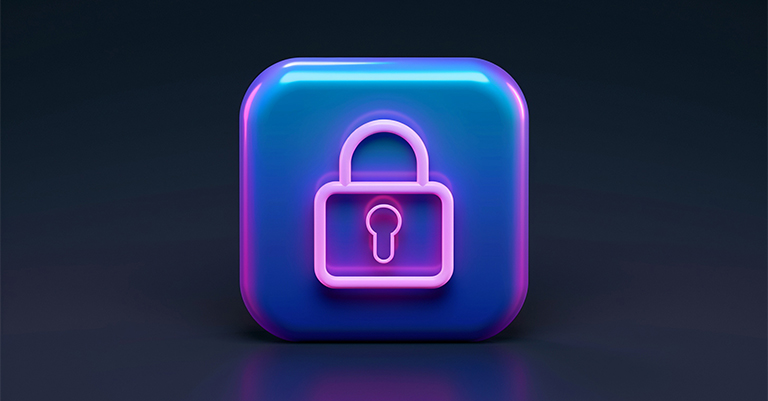The internet can be a dangerous place. Websites need to protect visitors from hackers and data thieves. This is where SSL certificates come in! They safeguard your website and help with technical SEO. But what exactly are SSL certificates, and why do you need one? Let’s find out.
What is an SSL Certificate?
An SSL certificate is like a digital badge of trust. It tells visitors your website is safe to use. The letters “SSL” stand for Secure Sockets Layer. This technology encrypts information shared between a visitor’s browser and your website. Encryption scrambles the data so hackers can’t steal it.
Why Does It Matter?
Without SSL, sensitive data like passwords and credit card numbers can get stolen. SSL protects these details, keeping your visitors safe.
You’ll know a website has SSL if the URL starts with https:// instead of just http://. Sometimes, you’ll even see a padlock icon next to the URL.
How SSL Certificates Improve Website Security

SSL certificates make your website safer by doing three important things:
Encrypting Data
SSL certificates keep websites safe by locking up information so hackers can’t steal it. When you type something on a website, like a password or your credit card number, SSL scrambles the data. This is called encryption. The website and your browser use special keys, like secret codes, to unlock the scrambled data so only they can read it.
This is important because it stops bad guys from stealing or messing with your information as it travels across the internet. It also keeps your private details, like addresses or payments, safe and hidden.
SSL makes websites more secure, so you can feel safe using them. Whether you’re shopping online or filling out a form, SSL helps protect your information and shows you can trust the site.
Authenticating Your Website
SSL certificates help prove that a website is real and safe to use. Before giving a website an SSL certificate, a trusted company checks to make sure the website belongs to the right person or business. This process stops scammers from creating fake websites to trick people.
When you visit a website with an SSL certificate, your browser looks at the certificate to make sure everything matches. If it’s valid, you’ll see a padlock or “HTTPS” in the web address. This shows the website is trustworthy.
This is important because it keeps you safe from fake websites trying to steal your information, like passwords or credit card numbers. When a website has an SSL certificate, you can feel more confident using it to shop, log in, or share personal details. It helps you know you’re in the right place!
Building Trust with Users
SSL certificates help people feel safe when they visit a website. They show that the website is secure and cares about protecting their information. When a site has an SSL certificate, you’ll see a padlock or “HTTPS” in the address bar. This tells visitors that their data, like passwords or payment details, is kept safe from hackers.
If a site doesn’t have SSL, browsers might show a warning saying, “Not Secure.” This can scare visitors away. But with SSL, people know the site is trustworthy and safe to use.
SSL certificates also stop fake websites from tricking users. They prove that the site is real and belongs to the right person or business. By keeping data safe and showing the website is authentic, SSL certificates help users feel more confident when browsing, shopping, or sharing information online.
How SSL Certificates Help Your SEO
SEO stands for Search Engine Optimization. It’s how you make your website rank higher on Google. SSL certificates don’t just protect your site—they also improve your SEO.
Google Prefers HTTPS
Google likes websites that use HTTPS because they are safer for people to visit. HTTPS means the website has an SSL certificate, which protects visitors by keeping their information private. This is important for things like passwords, credit card numbers, and other personal details.
Websites without HTTPS are less secure, and hackers can steal or change the information people share on them. Google doesn’t want to send users to unsafe websites, so it gives HTTPS websites a higher ranking in search results.
By preferring HTTPS, Google helps make the internet a safer place. When a website uses HTTPS, visitors see a padlock in the browser, showing it’s secure. This builds trust and makes people feel more comfortable using the site. If a website wants to rank better on Google and keep visitors happy, it should use HTTPS.
Improved User Experience
SSL certificates make websites safer and more enjoyable to use. When a website has SSL, you see a padlock or “HTTPS” in the address bar. This shows the site is secure, so you can trust it with your personal information like passwords or credit card numbers.
Without SSL, browsers might show scary warnings saying the site is “Not Secure.” These warnings can make people leave the site quickly. But with SSL, users feel safe and stay longer.
SSL also helps websites load faster, especially on phones and tablets. Nobody likes waiting for slow websites, so a fast, secure site makes people happy.
By keeping users safe, stopping warnings, and speeding things up, SSL certificates make the whole experience better. When a site is secure, it’s easier to trust and enjoy!
Lower Bounce Rates
If users see a warning like “Not Secure,” they might leave immediately. SSL certificates prevent these warnings.
How to Get an SSL Certificate

You don’t have to be a tech wizard to get an SSL certificate. Follow these steps:
Choose the Right SSL Certificate
Not all SSL certificates are the same. Here are the main types:
Domain Validated (DV)
Good for blogs or personal websites. Easy to get and affordable.
Organization Validated (OV)
Best for businesses. Proves your organization is real.
Extended Validation (EV)
Offers the highest level of trust. Perfect for e-commerce sites.
Pick a Certificate Authority (CA)
A CA is a trusted company that issues SSL certificates. Examples include:
- Let’s Encrypt (free option)
- Comodo
- DigiCert
Install the SSL Certificate
Most hosting providers offer simple tools to install your SSL certificate. You can also ask their support team for help.
Free vs. Paid SSL Certificates
Free SSL Certificates
- Great for small websites or personal blogs.
- Easy to set up.
- Provided by companies like Let’s Encrypt.
Paid SSL Certificates
- Offer extra features like better support and warranties.
- Ideal for businesses and e-commerce.
Common SSL Certificate Problems and Fixes

Even the best websites can face SSL issues. Here’s how to handle common problems:
Mixed Content Errors
This happens when some parts of your website (like images) use HTTP instead of HTTPS. Fix this by updating your links.
Expired SSL Certificates
SSL certificates don’t last forever. Renew them before they expire to avoid warnings.
Incorrect Installation
If your certificate isn’t set up right, your site may still show as “Not Secure.” Ask your host for help.
Benefits Beyond Security
SSL certificates do more than protect data. They bring extra perks like:
- Better Credibility: Visitors trust your site more.
- Legal Compliance: Many countries require websites to protect user data. SSL helps you follow the rules.
- Increased Sales: Shoppers are more likely to buy from secure websites.
Steps to Keep Your SSL Certificate Active
An SSL certificate needs regular care. Follow these tips to keep it working:
- Monitor Expiration Dates: Mark your calendar so you renew it on time.
- Run Regular Scans: Use tools to check if your SSL is working properly.
- Upgrade When Needed: If your site grows, consider switching to a stronger SSL certificate.
Final Thoughts
SSL certificates aren’t just for big companies. Every website should have one. They protect your visitors, boost trust, and improve SEO. Best of all, they’re easy to set up. Act today to secure your site and enjoy the benefits of a safer, more successful online presence.




